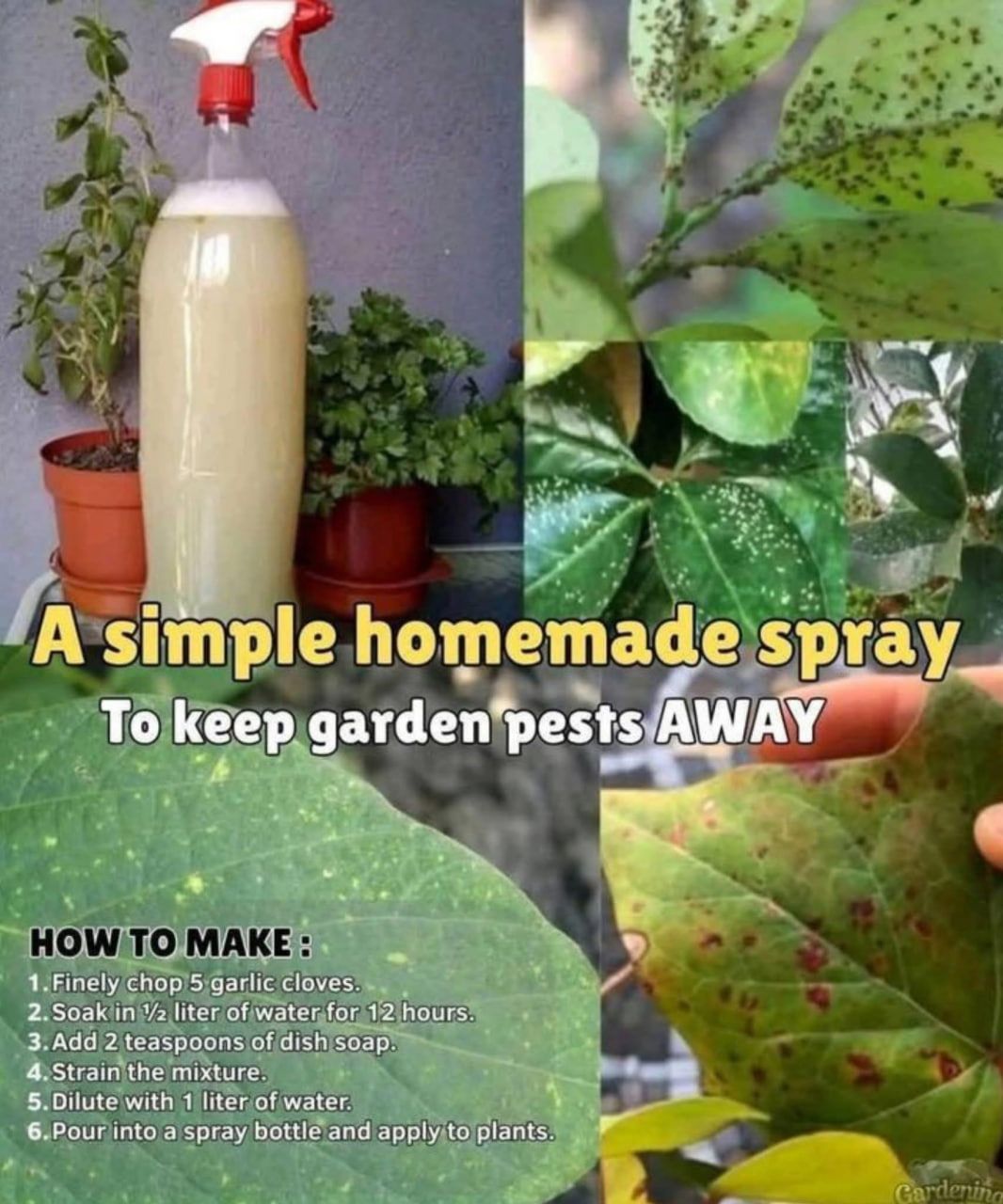Protect your garden the natural way—no harsh chemicals required! These three simple homemade sprays harness everyday kitchen staples to repel common pests like aphids, whiteflies, caterpillars, and more. We’ll cover step-by-step recipes, the science behind each ingredient, pro tips for maximum efficacy, troubleshooting advice, and an FAQ to address all your questions. Ready to keep your plants healthy and thriving? Let’s get started!
Why Choose Natural Pest Sprays?
Conventional pesticides can harm beneficial insects, contaminate soil and water, and leave residues on fruits and vegetables. Natural sprays:
- Target pests selectively without killing pollinators
- Biodegrade quickly and leave no toxic buildup
- Cost pennies per treatment using ingredients you already have
- Support integrated pest management for a balanced ecosystem
1. Garlic Spray
Ingredients
- 5 cloves garlic, finely chopped
- 0.5 L (2 cups) water
- 2 tsp mild dish soap
- Additional 1 L (4 cups) water for dilution
Instructions
- Combine chopped garlic and 0.5 L water in a sealed jar and let steep for 12 hours.
- Stir in 2 tsp dish soap to emulsify oils.
- Strain through fine mesh, discarding solids.
- Dilute with 1 L fresh water, gently stirring to mix.
- Transfer to a spray bottle and mist all leaf surfaces—undersides included.
How It Works
Garlic’s active compounds (allicin and ajoene) irritate insect chemoreceptors, deterring feeding. The soap helps the solution cling to leaves and disrupts insect eggs and newly hatched larvae.
2. Citrus Peel Infusion
Ingredients
- Peel from 1 organic lemon or orange
- 0.5 L (2 cups) boiling water
Instructions
- Finely grate or chop citrus peel into a jar.
- Pour 0.5 L boiling water over the peel; seal and let cool 24 hours.
- Strain infusion and discard peels.
- Pour liquid into a spray bottle and apply to foliage.
How It Works
Citrus peels contain limonene and other terpenes toxic to soft-bodied insects and mites. The strong aroma also masks plant volatiles that attract pests.
3. Vegetable Oil Insecticide
see continuation on next page
ADVERTISEMENT
ADVERTISEMENT

